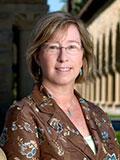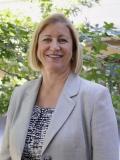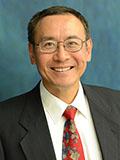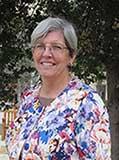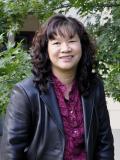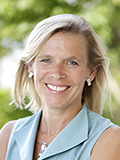Sally M. Benson joined Stanford University in 2007. She holds three appointments at Stanford: professor of energy resources engineering in the School of Earth, Energy & Environmental Sciences; director of the Precourt Institute for Energy, the campus-wide hub of energy research and education; and director of the Global Climate and Energy Project (GCEP), a pioneering university-industry partnership to develop innovative, low-carbon energy supplies to meet global energy needs. An internationally recognized scientist with extensive management experience, Professor Benson is responsible for fostering cross-campus collaborations on energy through the Precourt Institute and guiding the growth and development of GCEP's diverse research portfolio.
Prior to coming to Stanford in 2007, Professor Benson was at Lawrence Berkeley National Laboratory, a leading research center supported by the U.S. Department of Energy and managed by the University of California. She held a variety of key positions during her 29-year tenure at Lawrence Berkeley. From 2001 to 2004, she was deputy director of operations for the lab. She also served as director of the Earth Sciences Division and as associate laboratory director for Energy Sciences. From 1990 to 1998, she was also a visiting professor in the Department of Environmental Engineering and Earth Sciences at Clemson University in South Carolina.
A groundwater hydrologist and reservoir engineer, Professor Benson is widely regarded as a leading authority on carbon capture and storage and emerging energy technologies. In 2012, she served as a convening lead author of the Global Energy Assessment (GEA), a multinational project coordinated by the International Institute for Applied Systems Analysis. The GEA was the first fully integrated assessment that analyzed energy challenges, opportunities and strategies for developing, industrialized and emerging economies. The final GEA report presents a new global energy policy agenda, one that transforms the way society thinks about, uses and delivers energy.
Professor Benson's research interests include technologies for a low-carbon future and net energy analysis, a scientific method that weighs the energetic cost of energy production against the energy produced, with the goal of quantifying the overall energy efficiency of the production process. She and her GCEP colleagues conducted a groundbreaking series of net energy analyses calculating the energetic costs of wind turbines, solar photovoltaics and grid-scale renewable energy storage. Professor Benson also leads a research laboratory at Stanford that studies fundamental aspects of geologic carbon dioxide (CO2) sequestration in saline aquifers. In 2005, she served as a coordinating lead author of a special report on CO2 capture and storage published by the Intergovernmental Panel on Climate Change (IPCC). In 2007, she was one of thousands of IPCC scientists to receive the Nobel Peace Prize "for their efforts to build up and disseminate greater knowledge about man-made climate change, and to lay the foundations for the measures that are needed to counteract such change."
The author of more than 160 scientific publications, Professor Benson is the co-founding editor of the journal, MRS Energy and Sustainability. Her contributions have been acknowledged by the 2012 Greenman Award from the IEA Greenhouse Gas Program; the ARCS 2009 American Pacesetter Award; and the 2009 Michel T. Halbouty Distinguished Lecture Award from the Geological Society of America. Since 2006, she has delivered more than 200 invited talks on topics ranging from energy policy to carbon sequestration. She has also testified at U.S. Congressional hearings on climate change technology and CO2 sequestration.
Professor Benson serves on the boards of directors of the U.S. National Renewable Energy Laboratory, Carbon Management Canada and Climate Central. She is a member of the advisory board of the Lahore University of Management Sciences in Pakistan; the visiting committee of the Department of Environmental Engineering and Earth Sciences at Clemson University; the Energy, Climate and Infrastructure advisory board of the Sandia National Laboratory; the climate change committee of the American Association of Petroleum Geologists; the BIGCCS Scientific Committee of the Research Council of Norway; the American Geophysical Union; the Society of Petroleum Engineers; and the American Association for the Advancement of Science. In 2010, she served on the State of California’s Panel on Carbon Capture and Storage, and on the WRI Task Force on CCS in China.
Professor Benson received a B.S. in geology from Barnard College at Columbia University, and an M.S. and Ph.D. in materials science and mineral engineering from the University of California-Berkeley.


